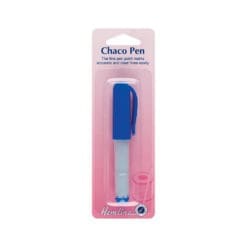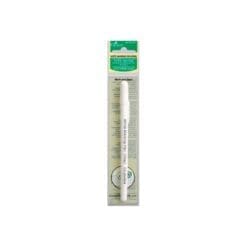Kwik Sew’s Sewing for Children
د.إ 472.75
In stock
KWIK?SEW s Sewing For Children is for girls and boys ages four through twelve. Sewing for children can be a very rewarding experience in many ways. It gives you an opportunity to be creative with appliqués and colour blocking. At this age children usually want to dress like their friends, yet they are developing definite tastes of their own and want to show some degree of individuality. They want a sweatshirt like their friends, however, the use of colour blocking can turn that garment into something special, it will still be a sweatshirt, but it is their sweatshirt. [KWIK SEW s Sewing for Children Book Cover] When you are sewing for children, try, if possible, to get them interested in the project, get them involved by taking them with you when you purchase the fabric. If they choose a particular design or colour, they are more likely to love the garment and want to wear it more often. Some children may express a desire to pick out or design their own appliqués. Like you, they also have a desire to be creative. Maybe the first item will not be the perfect garment you envisioned, but you have started them on what could be a rewarding hobby that will last them a lifetime. Older children, with your guidance, may want to sew some of the seams themselves. Help them by encouraging them and try not to be critical, after all they are the ones who will be wearing the clothes. Try to make it a fun project so that you both enjoy it. This not only applies to girls, but also to boys, many boys are just as interested as girls and in addition, they may be fascinated by the sewing machine itself. How does the machine work? How does the needle pick up the thread?
In addition to the fun you will have sewing for children, an additional reward is the money you will save. Most people believe that as children s clothes are much smaller than adult s clothing, they are also less expensive. This is not the case. While they may be somewhat less expensive, children s clothes cost a lot of money when they are purchased in your local store.
A master pattern is included to create entire wardrobes such as T-shirts, sweatshirts, jackets, pants, shorts, dresses, skirts, sleepwear and much more. This multi-sized master pattern is printed on durable white paper with colour coded lines for each size. The patterns are printed on both sides of the paper so we could include as many sizes and designs as possible. Trace the patterns using tracing paper or tracing cloth made from transparent pressed fibers.
The master pattern includes five unisex sizes. Patterns are made to fit specific body measurements with ease allowed for comfort and style. All of the master pattern pieces include 1/4? (6 mm) seam allowances. This is the best seam allowance to use when sewing children?s clothes. You can use a regular sewing machine or a serger/overlock machine. Before you trace the pattern, choose the size by comparing the child?s measurements to the measurement chart. Choose the size closest to the height, then compare the chest, waist and hip measurements. If in-between sizes, choose the larger size. The book gives instruction for making changes on the pattern for the proper fit.
Some of the pattern pieces are interchangeable so you can make many variations of the garments using the same pattern pieces. Also included are tips and ideas to add that personal touch including appliqués and colourblocking.
KWIK?SEW s Sewing For Children is for girls and boys ages four through twelve. Sewing for children can be a very rewarding experience in many ways. It gives you an opportunity to be creative with appliqués and colour blocking. At this age children usually want to dress like their friends, yet they are developing definite tastes of their own and want to show some degree of individuality. They want a sweatshirt like their friends, however, the use of colour blocking can turn that garment into something special, it will still be a sweatshirt, but it is their sweatshirt. [KWIK SEW s Sewing for Children Book Cover] When you are sewing for children, try, if possible, to get them interested in the project, get them involved by taking them with you when you purchase the fabric. If they choose a particular design or colour, they are more likely to love the garment and want to wear it more often. Some children may express a desire to pick out or design their own appliqués. Like you, they also have a desire to be creative. Maybe the first item will not be the perfect garment you envisioned, but you have started them on what could be a rewarding hobby that will last them a lifetime. Older children, with your guidance, may want to sew some of the seams themselves. Help them by encouraging them and try not to be critical, after all they are the ones who will be wearing the clothes. Try to make it a fun project so that you both enjoy it. This not only applies to girls, but also to boys, many boys are just as interested as girls and in addition, they may be fascinated by the sewing machine itself. How does the machine work? How does the needle pick up the thread?
In addition to the fun you will have sewing for children, an additional reward is the money you will save. Most people believe that as children s clothes are much smaller than adult s clothing, they are also less expensive. This is not the case. While they may be somewhat less expensive, children s clothes cost a lot of money when they are purchased in your local store.
A master pattern is included to create entire wardrobes such as T-shirts, sweatshirts, jackets, pants, shorts, dresses, skirts, sleepwear and much more. This multi-sized master pattern is printed on durable white paper with colour coded lines for each size. The patterns are printed on both sides of the paper so we could include as many sizes and designs as possible. Trace the patterns using tracing paper or tracing cloth made from transparent pressed fibers.
The master pattern includes five unisex sizes. Patterns are made to fit specific body measurements with ease allowed for comfort and style. All of the master pattern pieces include 1/4? (6 mm) seam allowances. This is the best seam allowance to use when sewing children?s clothes. You can use a regular sewing machine or a serger/overlock machine. Before you trace the pattern, choose the size by comparing the child?s measurements to the measurement chart. Choose the size closest to the height, then compare the chest, waist and hip measurements. If in-between sizes, choose the larger size. The book gives instruction for making changes on the pattern for the proper fit.
Some of the pattern pieces are interchangeable so you can make many variations of the garments using the same pattern pieces. Also included are tips and ideas to add that personal touch including appliqués and colourblocking.
| Weight | 0.3175 kg |
|---|
Only logged in customers who have purchased this product may leave a review.
Related products
Chalk & Fabric Markers
Chalk & Fabric Markers
Chalk & Fabric Markers
Chalk & Fabric Markers
Chalk & Fabric Markers
Chalk & Fabric Markers
Chalk & Fabric Markers










Reviews
There are no reviews yet.